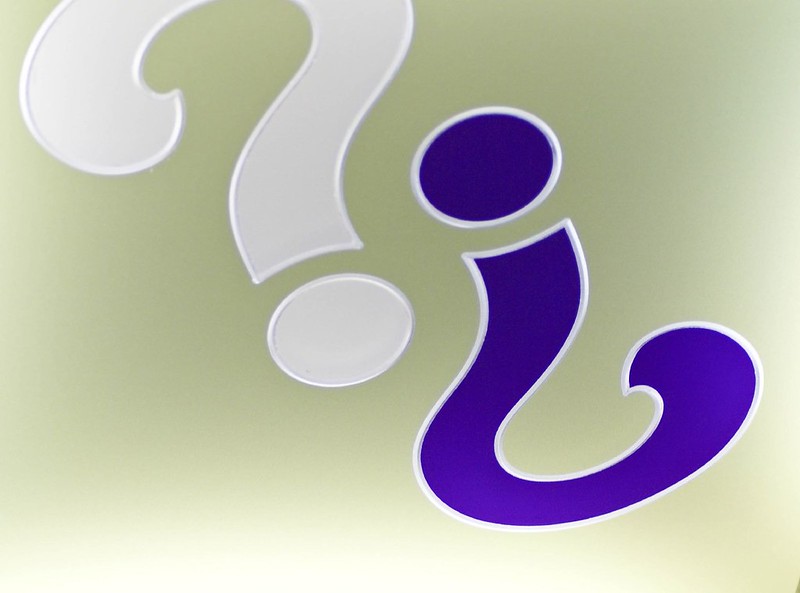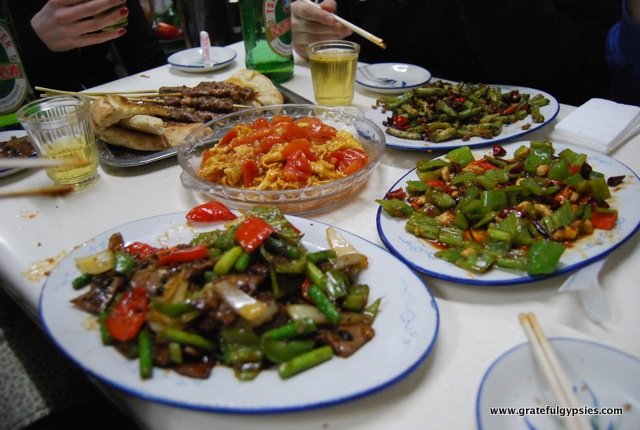A Guide to Asking Questions in Chinese Posted by sasha on Jun 8, 2020 in Vocabulary
Learning how to ask questions is important in any language. Even if you can’t really understand responses very well, being able to ask questions at least gets you started conversing with locals. Today I’m going to share a guide to asking questions in Chinese that I hope will help you out. 加油!
Question Words in Chinese
Let’s start out with the basic question words in Chinese. Here’s a nice little chart you can copy and paste or print out to study:
|
English |
Chinese |
Pinyin |
| Who | 谁 | shuí/shéi |
| What | 什么 | shén me |
| Where | 哪儿/哪里 | nǎ er/nǎ lǐ |
| When | 什么时候 | shén me shí hou |
| Why | 为什么 | wèi shén me |
| How | 怎么 |
zěn me |
A few notes on these question words: You probably noticed that “who” has two different spellings in pinyin.
Both are used and there isn’t really a standard one. For “where,” the first word is really only common in Beijing. People in Beijing love adding the 儿 (er) sound to the end of words.
You can also follow along with this short video I made a while back. It shows each of the question words along with a few examples:
Now let’s take a look at each of the question words individually with some more examples for you to practice.
Who…?
|
English |
Chinese |
Pinyin |
| Who are you? | 你是谁? | nǐ shì shuí |
| Who wants to go? | 谁想去? | shuí xiǎng qù |
| Who has a pen? | 谁有一支笔? | shuí yǒu yī zhī bǐ |
| Who is your teacher? | 你的老师是谁? | nǐ de lǎo shī shì shuí |
| Who ate my food? | 谁吃了我的饭? | shuí chī le wǒ de fàn |
What…?
|
English |
Chinese |
Pinyin |
| What’s this? | 这是什么? | zhè shì shén me |
| What’s your name? | 你叫什么名字? | nǐ jiào shén me míng zì |
| What things did you (plural) buy? | 你们买了什么东西? | nǐ men mǎi le shén me dōng xi |
| What’s his problem? | 他有什么事? | tā yǒu shén me shì |
| What would you like to eat? | 你想吃什么? | nǐ xiǎng chī shén me |
Where…?
|
English |
Chinese |
Pinyin |
| Where is the bathroom? | 卫生间在哪儿? | wèi sheng jiān zài nǎ er |
| Where do you live? | 你住在哪里? | nǐ zhù zài nǎ lǐ |
| Where’s he from? | 他是哪里的人? | tā shì nǎ lǐ de rén |
| Where are you going? | 去哪儿? | qù nǎ’er? |
| Where did you buy your computer? | 你在哪里买了你的电脑? | nǐ zài nǎ lǐ mǎi le nǐ de diàn nǎo |
This is another oldie but goodie from our YouTube channel. It’s all about asking questions with “where” in Chinese. It also teaches you some common vocabulary for location that will help in answering these questions.
When…?
|
English |
Chinese |
Pinyin |
| When do you start work? | 你什么时候上班? | nǐ shén me shí hou shàng bān |
| When are we leaving? | 我们什么时候走? | wǒ men shén me shí hou zǒu |
| When is your friend coming? | 你的朋友什么时候来? | nǐ de péng yǒu shén me shí hou lái |
| When do the kids start class? | 小孩什么时候上课? | xiǎo hái shén me shí hou shàng kè |
| When do you (plural) close? | 你们什么时候关门? | nǐ men shén me shí hou guān mén |
Why…?
|
English |
Chinese |
Pinyin |
| Why did you come to China? | 你为什么来中国? | nǐ wèi shén me lái zhōng guó |
| Why isn’t he going? | 他为什么不去? | tā wèi shén me bù qù |
| Why do you like playing basketball? | 你为什么喜欢打篮球? | nǐ wèi shén me xǐ huan dǎ lán qiú |
| Why isn’t she here yet? | 她为什么还没来? | tā wèi shén me hái méi lái |
| Why is this one so expensive? | 这个为什么那么贵? | zhè ge wèi shén me nà me guì |
How…?
|
English |
Chinese |
Pinyin |
| How can I get to the subway station? | 怎么去地铁站? | zěn me qù dì tiě zhàn |
| How do you cook Kung Pao Chicken? | 怎么做宫保鸡丁? | zěn me zuò gōng bǎo jī dīng |
| How do you know I’m American? | 你怎么知道我是美国人? | nǐ zěn me zhī dào wǒ shì měi guó rén |
| How are your parents? | 你的父母怎么样? | nǐ de fù mǔ zěn me yàng |
| How do you read this word? | 怎么读这个词? | zěn me dú zhè ge cí |
If you’re up for a challenge, try coming up with your own questions for each word. Even just one question for each word is good progress! Better yet, get out there and practice asking them to someone!
When I first started learning Chinese in Beijing, I would ask random questions to cab drivers all the time just to practice. Don’t worry about making mistakes and just go for it!
Yes/No Questions in Chinese
Now that we made it through the common question words, how about asking yes/no questions? The tricky thing about Chinese is that there aren’t words that directly translate as “yes” and “no.”
The good news is that it’s pretty easy forming a yes/no question. To do this, you simply add 吗 (ma) to the end of a statement. This changes it into a yes/no question. Just look at this example:
You are a student.
你是学生.
nǐ shì xué shēng
Are you a student?
你是学生吗?
nǐ shì xué shēng ma
As you can see, adding 吗 to the end of the statement changed it into a yes/no question. To answer yes/no questions in Chinese, you simply repeat the verb to give an affirmative answer. In this example, that would be 是. Responding with 是 means “Yes, I am” in this case.
To give a negative answer, you add either 不 (bù) or 没 (méi) in front of the verb. In this case it would be 不是, meaning “No, I’m not.”
Let’s look at another example to see how to form a yes/no question and how to answer negatively with 有:
He has children.
他有孩子.
tā yǒu hái zi
Does he have children?
他有孩子吗?
tā yǒu hái zi ma
For this example, an affirmative answer could simply be 有, meaning “Yes, he does.” To answer negatively, it would be 没有, which in this case means “No, he doesn’t.”
If you want to take a closer look at yes/no questions, be sure to read this post and check out this video as well:
I hope this guide to asking questions in Chinese has been helpful. As always, if you have any questions of your own, feel free to leave a comment below and I’ll do my best to answer!

Build vocabulary, practice pronunciation, and more with Transparent Language Online. Available anytime, anywhere, on any device.







Comments:
Maria:
Hello Sasha! I am Maria from Brazil and I’ve just read your explanation about making questions in Chinese and I can say it’s fabulous! ?? thank you very much for enlightening these subjects freely without changing.
You are an amazing teacher.
?